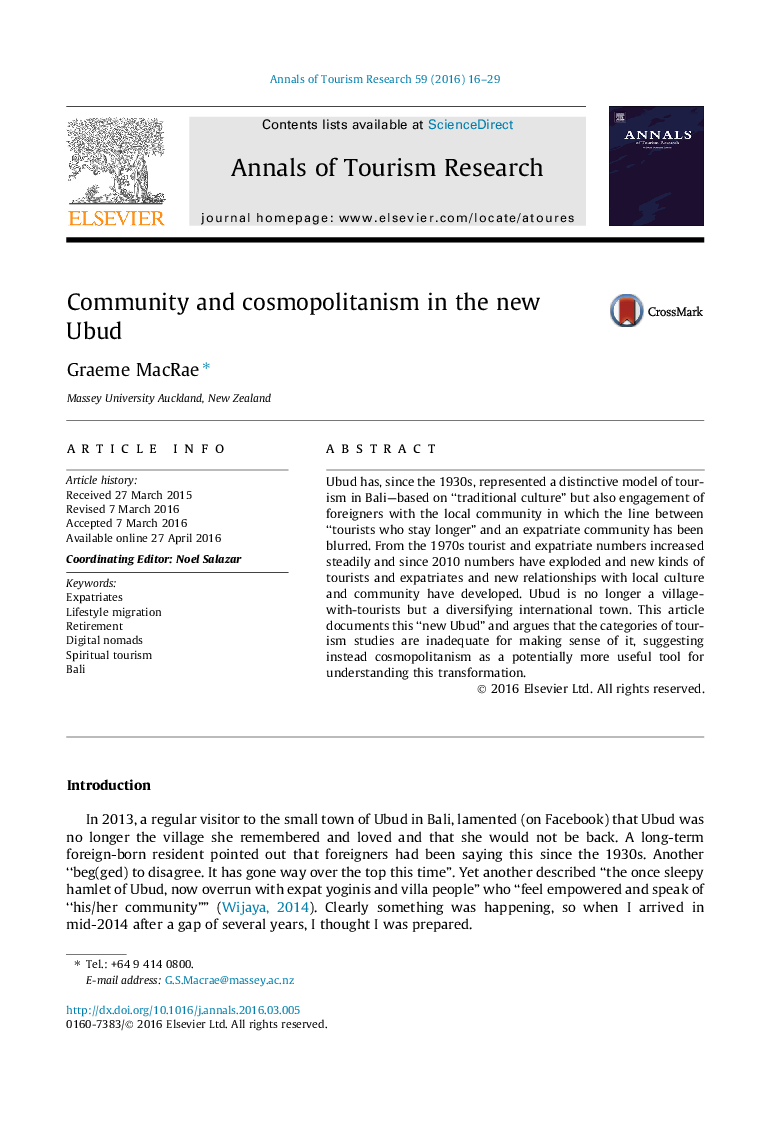| Article ID | Journal | Published Year | Pages | File Type |
|---|---|---|---|---|
| 1006958 | Annals of Tourism Research | 2016 | 14 Pages |
•Documents changes in tourism and the expatriate community in Ubud, Bali.•Concepts of tourism studies are adequate for understanding this changed environment.•Cosmopolitanism may offer a more promising framework for understanding.
Ubud has, since the 1930s, represented a distinctive model of tourism in Bali—based on “traditional culture” but also engagement of foreigners with the local community in which the line between “tourists who stay longer” and an expatriate community has been blurred. From the 1970s tourist and expatriate numbers increased steadily and since 2010 numbers have exploded and new kinds of tourists and expatriates and new relationships with local culture and community have developed. Ubud is no longer a village-with-tourists but a diversifying international town. This article documents this “new Ubud” and argues that the categories of tourism studies are inadequate for making sense of it, suggesting instead cosmopolitanism as a potentially more useful tool for understanding this transformation.
